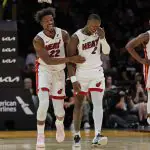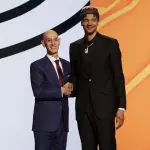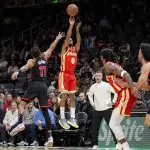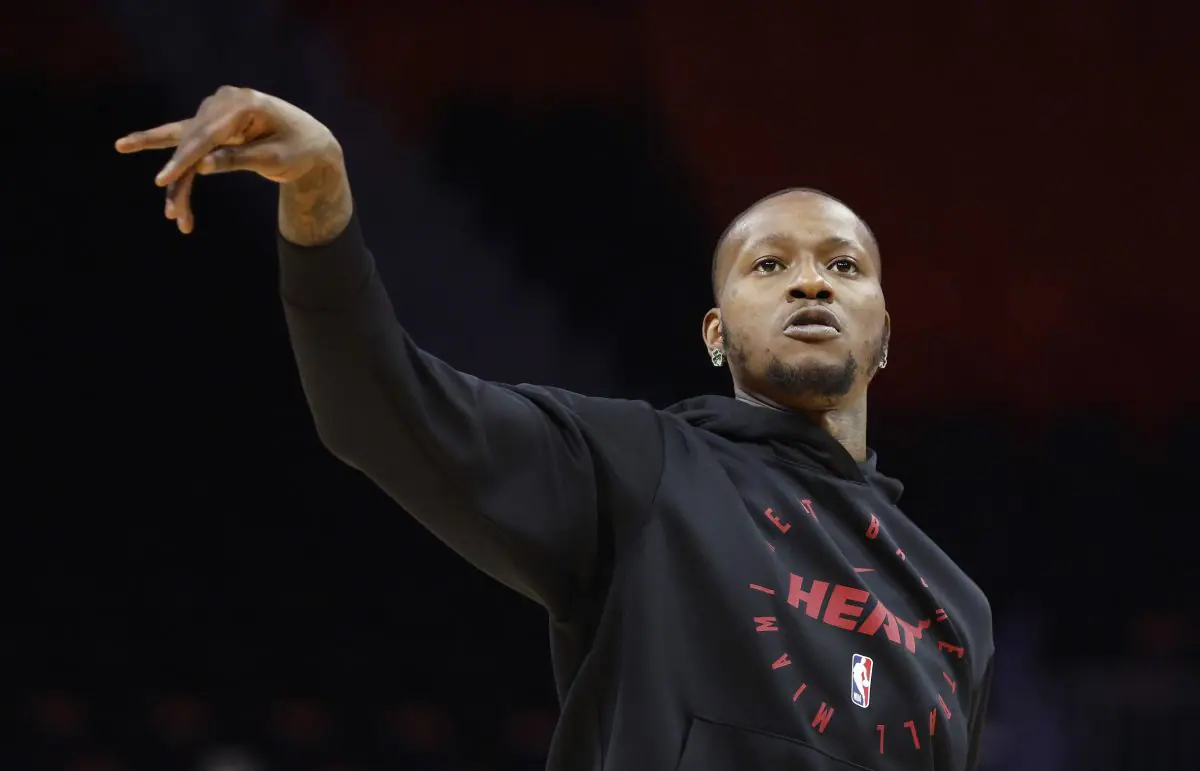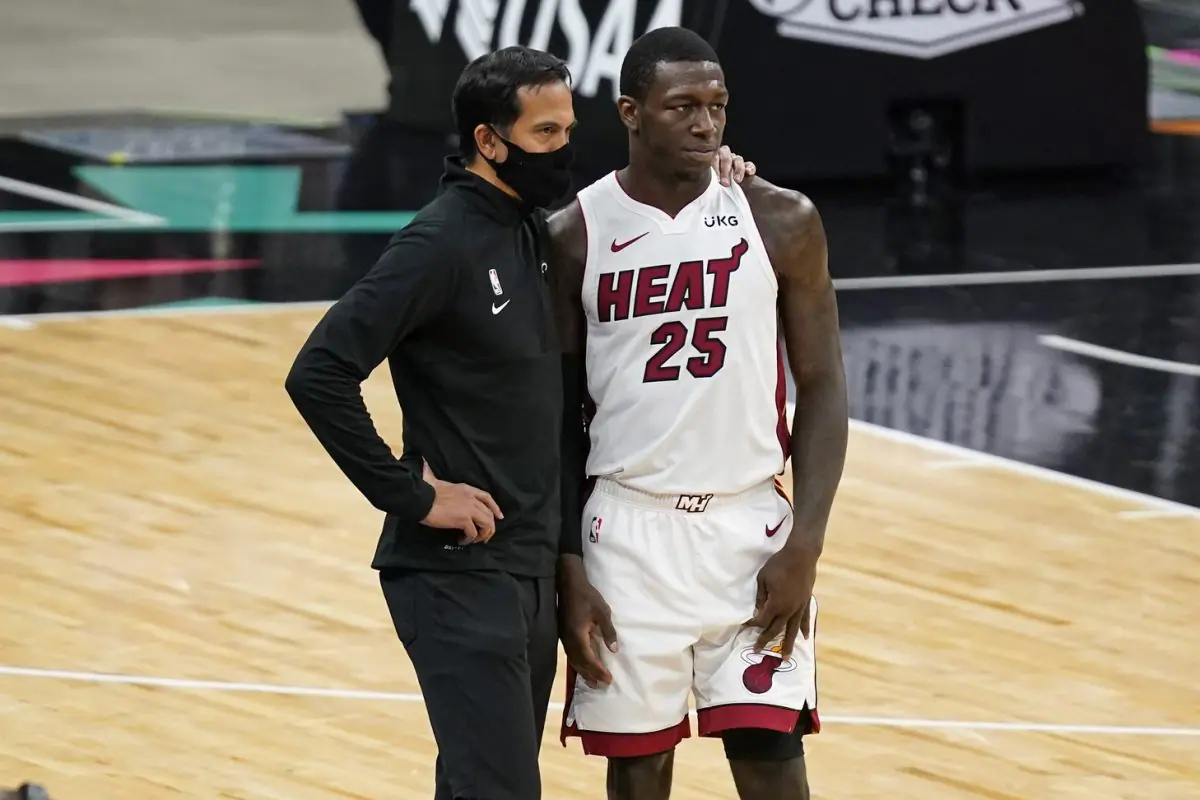Prior to LeBron James’ departure from the Miami Heat in 2014, he expressed little interest when asked by Pat Riley to take less than a max deal as part of a contract extension.
Marc Stein wrote on “The Stein Line” about James Harden’s new deal with the Philadelphia 76ers and offered a comparison to James’ situation in 2014.
“Hearing about the level of latitude James Harden says he granted the Sixers in his contract negotiations reminded me of a little-known tale stemming from Miami’s attempts to convince LeBron James to stay on South Beach in the 2014 offseason before James decided to go home to Cleveland for a second stint with the Cavaliers,” Stein wrote.
“That summer, Miami’s Pat Riley and noted Heat front-office strategist Andy Elisburg hosted James’ agent Rich Paul and longtime NBA agent and attorney Mark Termini, then the lead negotiator for Klutch Sports, for a meeting to discuss what the Heat could do roster-wise depending on various contract constructions … and to see if there was any way James’ representatives would agree to something less than a maximum deal to afford the Heat more financial flexibility for roster building.
“James, to that point in his career, had stunningly never been a max player, which were the only terms Paul and Termini were prepared to accept. Yet league sources say that didn’t stop Riley, with a smile and a burst of his usual gumption, from capping the presentation by proposing that James re-sign with Miami for a nominal number to give Riley serious latitude to retool the roster after the Heat’s humbling five-game defeat to San Antonio in the 2014 NBA Finals. It wasn’t totally clear in the moment, sources said, if Riley was serious or just being glib.
“The proposal, either way, was greeted with silence … and James soon returned to the Cavaliers on a two-year, $42 million deal with a player option in Year 2 designed to give him an immediate opportunity to return to free agency if he wished and apply maximum pressure on the Cavaliers’ front office to make win-now moves.”
After signing with the Heat in a controversial free agent signing in 2010, James joined with Dwyane Wade and fellow free agent Chris Bosh to lead the Heat to four straight finals appearances. James won Finals MVP accolades in both 2012 and 2013 as the Heat managed to capture back-to-back NBA championships.
That level of production, along with his having never obtained a max deal, presumably explains the reasoning behind James’ rigid stance against making another financial sacrifice for the Heat.
The move obviously would have provided the Heat with financial flexibility for the near future. However, there was certainly no guarantee the Heat would have been able to bolster their roster in the manner that Riley hoped.
In addition, James had grown up near Cleveland and spoke about completing unfinished business when he re-signed with the Cavaliers
During James’ four years with the Cavaliers, he once again led his team to the finals during each of those seasons. In 2016, he was a major factor in helping the Cavs bounce back from a 3-1 deficit in the finals and ended up being named Finals MVP.
In 2018, James then left to play for the Los Angeles Lakers and once again led his team to a league title. In this case, it was done under much more trying circumstances in 2020 within the pandemic-induced bubble in Orlando, Fla. in 2020.
Whether or not the Heat would have continued their run of trips to the finals had James re-signed in 2014 is open to debate. Still, with no championships for the franchise since his departure, it’s a debate tinged with regret.
